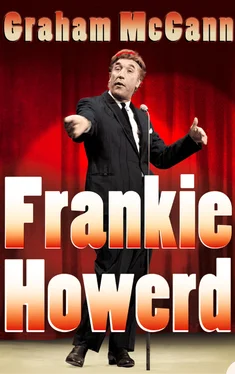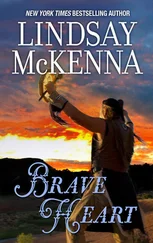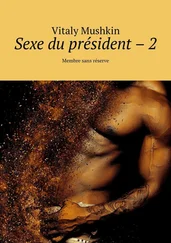1 ...6 7 8 10 11 12 ...25 He realised, as he sobbed backstage, that he could not take any more of this, but he also recognised, as he dried his eyes, that he would be unable not to take any more of this. He was trapped, and he knew it, and so, yet again, he resolved to go on.
He tried more talent nights, but won none. He staged more plays, concerts and revues, but most of them faded from memory soon after they were done. He auditioned on no fewer than four separate occasions for Carroll Levis, the powerful talent scout, but the result of each one of them was the same: rejection. The recurring problem was not that people failed to glimpse any potential; it was just that, far too often, the nerves kept getting in the way. No matter how many times someone said âNo,â however, Frank Howard never stopped believing that, one day, someone would say âYesâ: âI was the most undiscovered discovery of my day!â 34
This, for the foreseeable future, was what he would remain. A war was about to break out. His own personal breakthrough would have to wait.
So, anyway, he said, âI was wondering if you could go to the lads,â he said, âand give them a turn. â Yes! Thatâs what I thought â cheeky devil!
This time, he did not even need to audition: the British Army showed no hesitation in signing him up for the duration. It had taken the outbreak of a war, but, at last, Frank Howard was able to feel that he was wanted.
The precise date of his admission is a matter of some dispute. Howerd â that notorious biographical dissembler â would claim that it had arrived one day in February 1940 1 â more or less a month short of his twenty-third birthday, and a decidedly dilatory-sounding four months after his name was first registered for conscription. 2 On this particular occasion, however, he was probably telling the truth: his call-up papers remain unavailable for public scrutiny, but, given the bureaucratic inefficiency that is known to have dogged the entire process of mobilisation, the date is not quite as implausible as, at first glance, it might seem. 3
His initial hope, once war was declared, had been to join ENSA (an acronym that stood formally for âEntertainments National Service Associationâ, and informally for âEvery Night Something Awfulâ). 4 The motivation, he later took pains to explain, had not been âto dodge the columnâ, but rather âto try to be of service at something I thought I was good at: entertainingâ. 5 Even at that early stage, however, the ENSA organisers were already managing to attract a sufficient number of suitably-qualified applicants (ranging from ageing music-hall performers to a younger breed of actors, comedians and musicians) to make them feel able to pass on such a raw and unconventional talent, and so Howard was forced to try his luck elsewhere.
He ended up as just another regular soldier in the Royal Artillery â his fatherâs old regiment â and was posted to Shoeburyness Barracks, near Southend-on-Sea, in Essex. It was there that, within a matter of days, âThe Actorâ acquired a new nickname: âThe Unknown Quantityâ. 6
The name was first spluttered in exasperation by the latest authority figure to loom large in Frank Howardâs life: a loud and irascible little man called Sergeant-Major Alfred Tonks. Howard â a gangling, slouching, stammering and startlingly uncoordinated creature in crumpled khaki â managed to make his Sergeant-Major angry, distressed, amused and confused in broadly equal measure.
He always struggled to look half-smart, made a shocking mess of stripping down his rifle, never seemed to know when he was supposed to march quick or slow, mixed up âstanding at easeâ with âstanding easyâ, and was often a positive menace on the parade ground. âFrank just couldnât get it together,â one of his former comrades recalled. âWhen the sarge shouted âRight wheel!â once, Frank actually headed off to the left. And when the order came to âMark time!â â guess who bumped into my back and sent me sprawling into the bloke in front? Right first time.â 7
As if intent upon making matters even worse, Howard sometimes also failed to fight the urge to answer back. On one particular occasion, straight after Sergeant-Major Tonks had shrieked out his standard sequence of critical clichés â âYou âorrible shower!â â young Private Howard actually had the temerity to mutter in response: âSpeak up!â It was âmerely a nervous reflexâ, he later explained, but it was more than enough to spark another noisy rant from his ruddy-cheeked tormentor. 8
The only thing that saved him from spending one long spell after another stuck in the glasshouse was the fact that Tonks, though clearly impatient to hammer this risibly unconventional soldier into some kind of vaguely acceptable shape, could never quite decide whether he was dealing with a âtruculent rebelâ or merely a useless idiot. 9 He settled for thinking of Howard as his âUnknown Quantityâ â partly because the act of classifying the unclassifiable made him feel as if he was restoring at least the semblance of order to his environment, and partly because he was probably quite relieved to leave the true nature and extent of that âquantityâ undiscovered.
Once the trauma of basic training was finally over, Howard was transferred away from Tonks â no doubt much to their mutual relief â and into B Battery in another section of the barracks. Accorded the rank of Gunner, Frank began busying himself with the business of providing a proper form of defence for an area of Essex surrounding Shoeburyness.
His thoughts, however, were seldom far removed from the much more pleasant world of show business. As soon as he started to settle, he found that all of the old âpassionâ and âfireâ that had recently been âdamped down by the practicalities of circumstanceâ now suddenly âburned hot againâ. 10 Hearing that some of his fellow garrison personnel were putting on a concert each Sunday night in the local YMCA, he eagerly sought out the Entertainments Officer and offered his services as a stand-up comic. The out-of-his-depth officer, who had been anxiously patrolling the corridors asking anyone and everyone he encountered if they might just possibly be able to âdo anythingâ, accepted the offer without hesitation. Frank Howard the performer was free to make his comeback.
When he stepped on to the stage the following Sunday, however, he was more than slightly surprised to hear himself introduced by the compère as âGunner Frankie Howard of B Battery.â He did a quick double-take: â Frankie Howard?â He had never allowed anyone to call him â Frankie â before â âI didnât like Frankie a bit; it seemed positively babyishâ â but, once the show was over, he soon came to find that it had caught on, and, in time, he would reluctantly become resigned to the fact that the name was destined to stick (âA pity, reallyâ). 11
The performance itself had gone down rather well. Most of his four-minute spot was filled with the kind of tried and tested material that had been blatantly âborrowedâ from professional comedians â most notably Max Miller â but he did manage to make at least one elderly gag sound vaguely original:
I was at a dance the other night in Southend. At the NAAFI. And this girl was there. Very nice, she was. Yes. So after the dance I said to her: âMay I see you home?â And she said: âOh, er, yes. Thank you very much!â So I said: âWhere do you live?â She said: âI live on a farm. Itâs not very far from here. Itâs about a half-an-hour walk.â So I said: âOh, right, thatâs fine.â Then she said: âThe only thing is, you see, Iâve got a couple of packages to pick up, from my uncle, to take back home to the farm. Would you mind?â So I said: âNo, no, weâll call in. What are they, by the way, these packages?â She said: âTwo ducks.â I said: â Ducks? â She said: âOh, itâs all right. Theyâre not dead. Theyâre alive. But they wonât flap. Theyâre all sort of bound up a bit.â So we went down to this uncle, and he gave her these two ducks. So I â the perfect gentleman â said: âPlease, let me. Iâll carry them.â So I put one under each arm. And then off we traipsed, down this lane and across this field. Pitch dark it was. And all of a sudden this girl fell back against a hedge and went: â Ooo-aaa-eee! â I said: âWhat the hellâs wrong with you ?â She said: âIâm frightened!â I said: âWhat on earth are you frightened of ?â And she said: âIâm frightened of you!â I said: âFrightened of me?â She said: âYes. Iâm frightened that youâre going to try and make love to me!â I said: âHow the hell can I make love to you with a duck under each arm?â So she said: âWell, I could hold âem for you, couldnât I?â
Читать дальше












